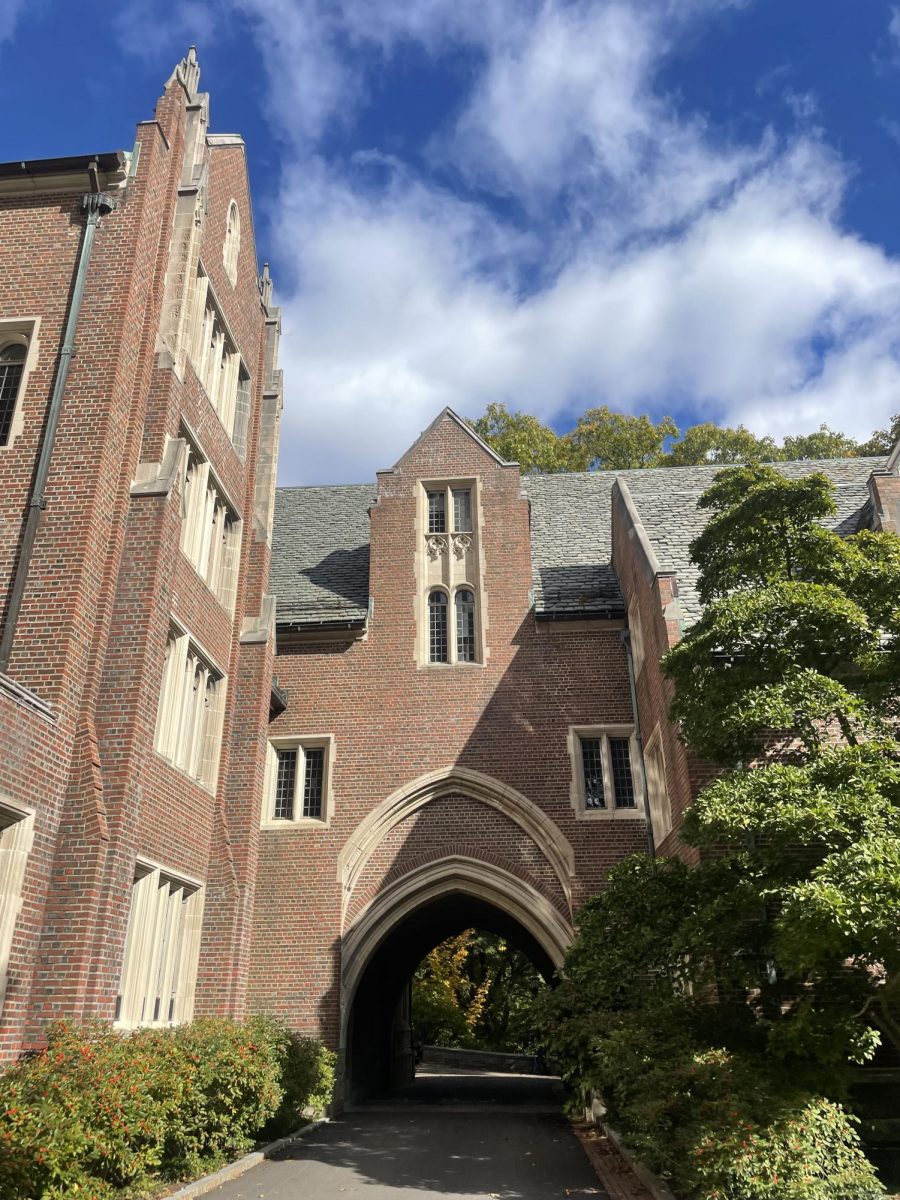In response to changing U.S. immigration policies, Wellesley College has hosted a series of events in the last several weeks that are aimed at helping the community understand relevant policy developments and their impact. On Thursday, Feb. 1, lawyers from MetroWest Legal Services, based in Framingham, Mass., offered counsel during an event hosted by the College entitled “Know Your Rights.” The presentation was followed by a free law clinic during which three MetroWest attorneys offered individual consultation.
Earlier that same week, on Jan. 30, the College hosted an information session led by immigration lawyer Elizabeth Goss of The Law Office of Goss and Associates in which she explained recent immigration policy changes, particularly focusing on Deferred Action for Childhood Arrivals (DACA) and Temporary Protected Status (TPS).
These presentations and the legal clinic were organized by the Working Group on Immigration and Refugee Policies at Wellesley, which was formed in February 2017 at the behest of Wellesley College President Paula Johnson. The group was created in response to both ongoing national policy changes and the Nov. 22 Sanctuary Campus Petition, which urged President Johnson to declare “a plan to provide sanctuary to students from federal immigration investigation and enforcement.” Associate Professor of Education Soo Hong serves as chairperson of the group, which includes a wide range of faculty and staff members as well as a number of student representatives. Hong was not available for comment at this time.
According to an April 3, 2017 email from President Johnson, the working group is charged with the task of “helping the College understand and support the needs of any undocumented members of our community—or any other community members—who may be feeling vulnerable as the political climate and regulations related to immigration and refugee status continue to change.”
Maheen Akram ’20 has been involved with the working group since its inception and serves as a student representative for the group.
“After Trump got elected, I felt scared. The travel ban was just a reaffirming of my fears, and I saw that some of my friends were at risk, so I wrote a long emotional email to President Johnson that Wellesley should do something for the students and declare itself a sanctuary campus. I received an reply back from her … in which she invited me to become a part of the working group on immigration,” Akram said.
Gaby Varela ’20 also serves as a student representative in the College’s Working Group on Immigration and Refugee Policies. She stated that she joined the group because of her work with Raíz, a student-led organization that advocates for the respect, dignity and rights of immigration and refugee communities on- and off-campus. Though the group works to ensure that institutional support is available to affected members of the community, Varela believes Wellesley should do more.
“I think having the group is important, but what’s more important is hiring someone whose sole job is to focus on these issues. The work continues to fall on those who are affected and who have to go through a lot of emotional labor, which isn’t fair. I wish Wellesley would hire someone because I’m sure they have the means to do it, and immigration is a recurring issue that will continue to come up,” she explained.
Efforts to support community members who are affected by the policy changes have been ongoing. Last October and November, the working group offered drop-in hours with several of its members, allowing the community one-on-one access to individuals who are well-versed in the complexities of policy changes and knowledgeable about the various resources that are available.
In the fall 2017 semester, the College hosted guest lecturers who addressed topics relating to students and immigration issues. On Nov. 1, Roberto Gonzales, professor of education at Harvard University, delivered a lecture discussing his study of undocumented immigrants in the U.S. and also spoke about a project which focused on immigrants in the DACA program. On Nov. 30, Latino/a Studies scholar Lorgia Garcí-a Peña, who is also a Harvard University associate professor of romance languages and literature and of history and literature, spoke about the topic of supporting undocumented students and their families.
Varela invites feedback from the community as the working group continues its efforts to support those affected by immigration policy changes.
“There are only three students on the group, and we [aren’t] representative all of the student body, so please tell us your questions, concerns and events you’d like planned. There will be a Town Hall sometime in March where we will re-introduce the group to the community and address people’s concerns,” she said.
Varela also encouraged those who are interested to visit the group’s website, which features updates on immigration legislation, events the group is hosting and the contact information of group members.






